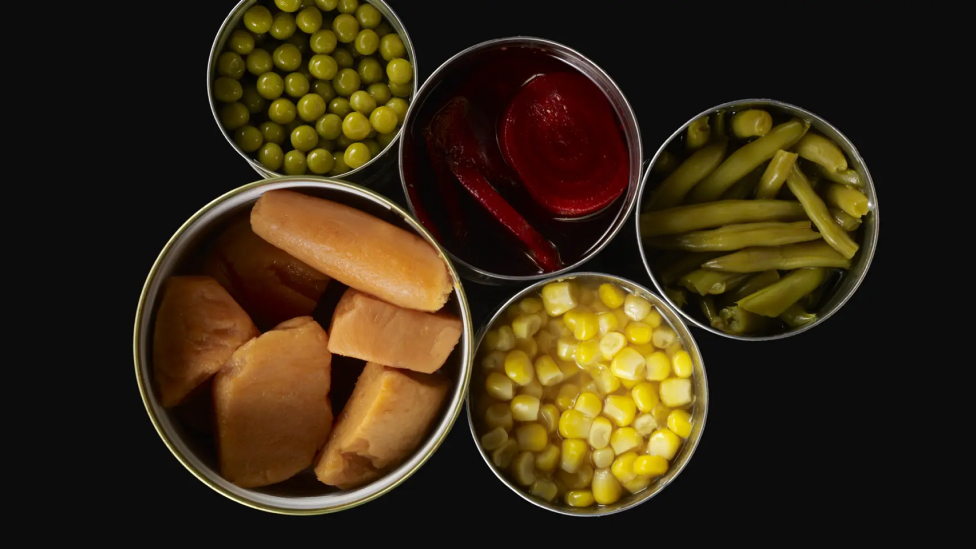Canned food has had a profound impact on food preservation since its inception.

This article explores the scientific aspects of canned food and its transformative effects on food safety, shelf life extension, nutritional value, and global food security. By delving into scientific figures, insights, and research, we gain a deeper understanding of the significant role canned food plays in our modern society.
1. Microbial Safety and Shelf Life Extension:
Canned food's hermetically sealed environment provides a barrier against harmful microorganisms, ensuring food safety and reducing the risk of foodborne illnesses. The heat treatment involved in canning destroys or inactivates bacteria, yeasts, and molds, preventing their growth and spoilage. Scientific studies have shown that properly canned food can have a shelf life ranging from one to five years or even longer, depending on the product.
2. Nutritional Preservation:
The canning process aims to preserve the nutritional value of food. Scientific research has demonstrated that essential vitamins and minerals, such as vitamin C, thiamin, riboflavin, and folate, are relatively stable during the canning process. While some heat-sensitive nutrients may experience slight losses, the overall nutritional profile of canned food remains intact, making it a valuable source of essential nutrients.
3. Retention of Flavor and Texture:
Canned food retains its flavor and texture remarkably well, thanks to the preservation of key components during the canning process. Scientific studies have shown that the flavor compounds responsible for taste and aroma, as well as the texture of fruits, vegetables, and meats, are well-preserved in canned products. This retention of sensory attributes contributes to the overall quality and palatability of canned food.
4. Reduction of Food Waste:
Canned food plays a crucial role in reducing food waste. By preserving food at its peak freshness, canning prevents spoilage and extends the shelf life of perishable goods. This is particularly significant in the context of global food security, as it allows for the utilization of surplus produce, reduces post-harvest losses, and ensures a stable supply of food throughout the year.
5. Environmental Impact:
Canned food also has positive environmental implications. Scientific studies have shown that canned food reduces greenhouse gas emissions compared to fresh produce due to its extended shelf life and reduced transportation requirements. Additionally, the metal cans used in canning are highly recyclable, contributing to a more sustainable waste management system.
6. Convenience and Accessibility:
The impact of canned food extends beyond preservation. Canned products offer convenience and accessibility, making them a reliable food choice for individuals with busy lifestyles or limited access to fresh produce. Scientific research has highlighted the importance of canned food in meeting dietary needs, especially during emergency situations, natural disasters, or in regions with limited food availability.
7. Food Security and Global Reach:
Canned food plays a vital role in achieving global food security. It enables the preservation and distribution of food across vast distances, making it accessible to populations worldwide. Scientific figures show that canned food has been instrumental in addressing food shortages, supporting humanitarian aid efforts, and providing sustenance during times of crisis.
8. Ongoing Research and Innovation:
The impact of canned food continues to evolve through ongoing research and innovation. Scientists and food technologists are constantly exploring ways to improve canning techniques, optimize nutritional preservation, enhance sensory attributes, and develop sustainable packaging solutions. This commitment to research ensures that canned food remains a reliable and sustainable option for food preservation.
Conclusion:
The impact of canned food on food preservation is far-reaching and scientifically substantiated. From ensuring microbial safety and extending shelf life to preserving nutritional value and reducing food waste, canned food plays a vital role in addressing global food security challenges. Its convenience, accessibility, and environmental benefits further underscore its significance. As scientific research and innovation continue to advance, canned food will remain a cornerstone of food preservation, contributing to a more sustainable and resilient food system for generations to come.



采访刊发中国罐头⾏业-01.jpg)

